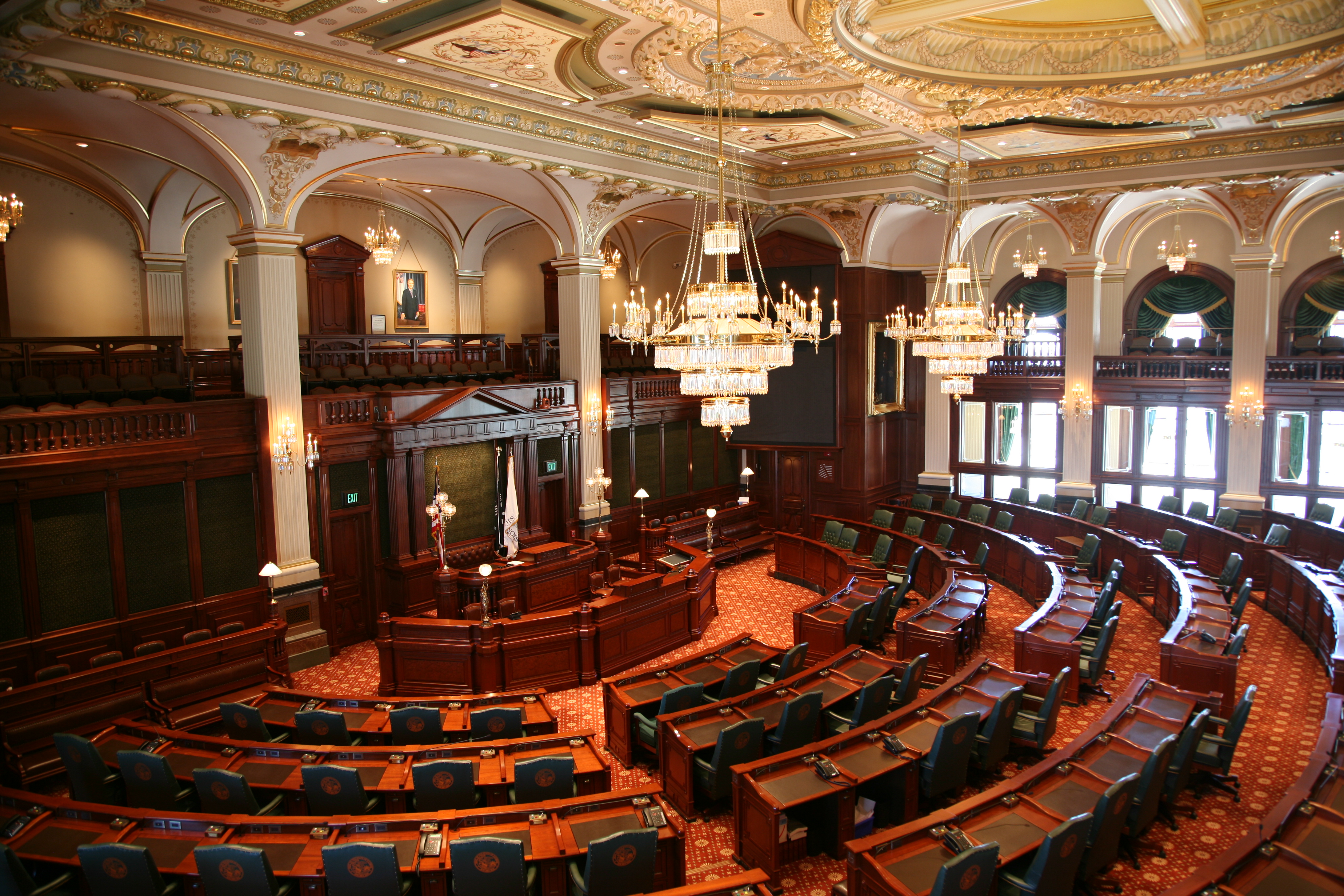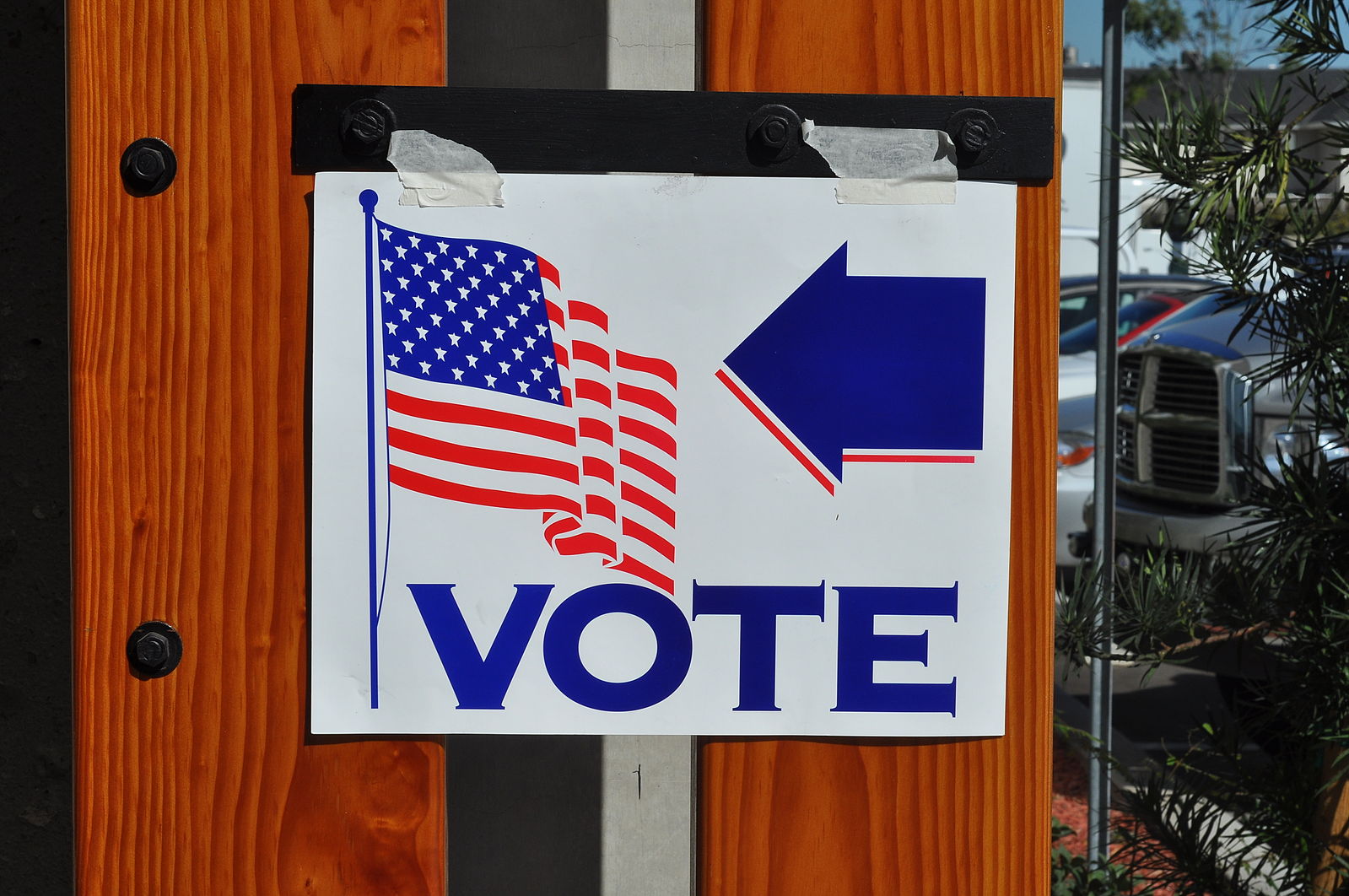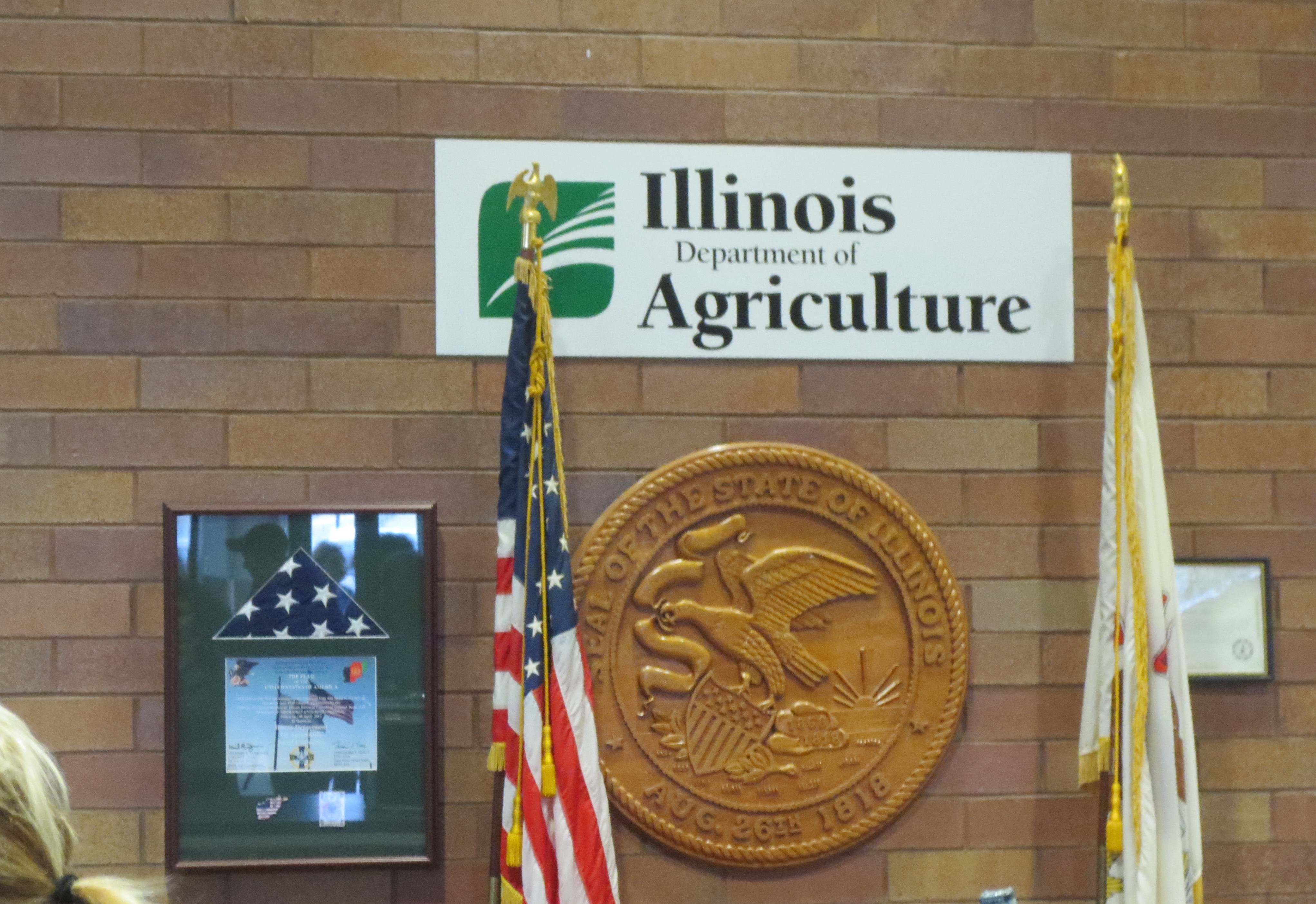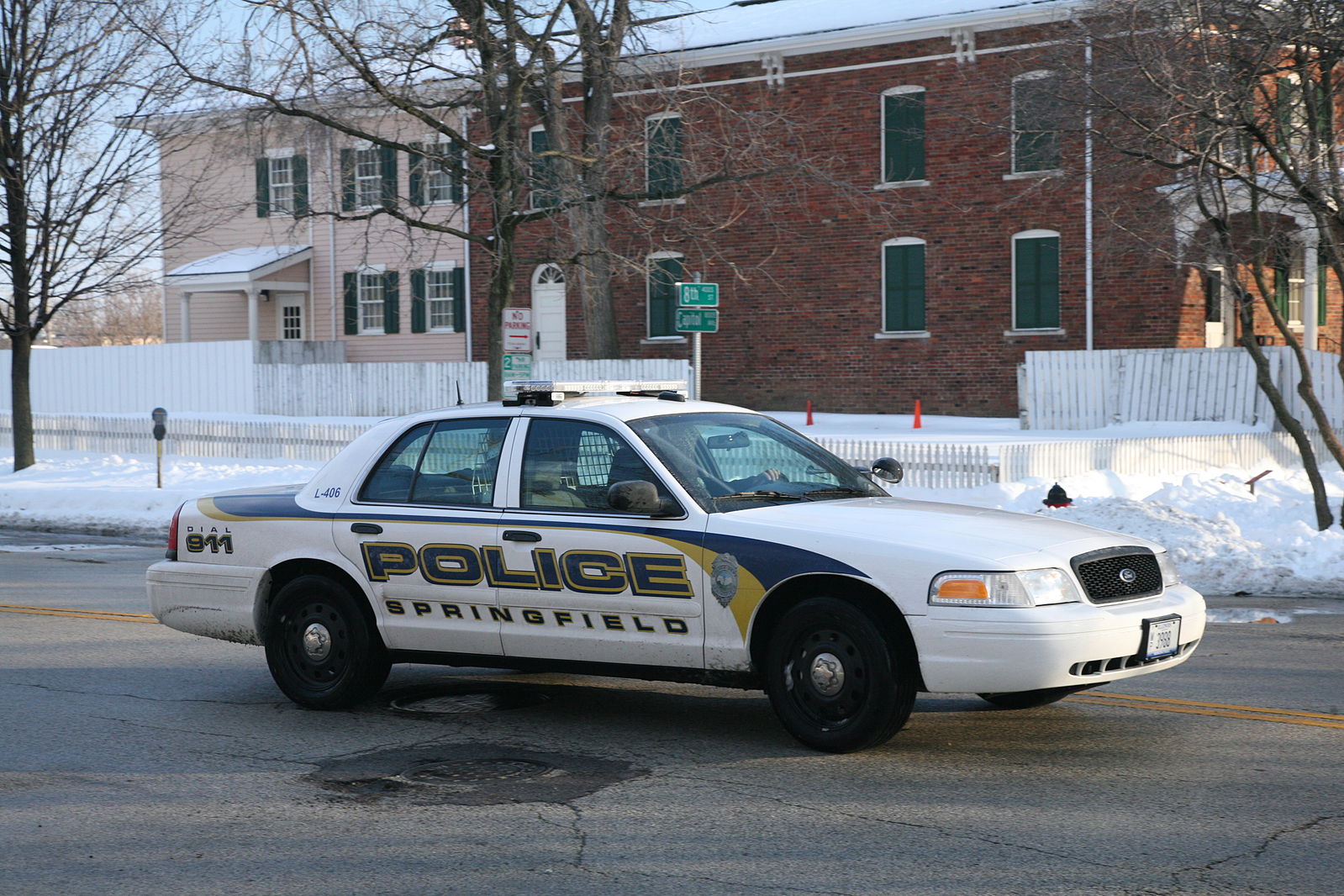The Capitol Bimonthly is a once-every-other-monthly state news briefer published by 14 East covering current issues in state news.
Legislative News

Daniel Schwen, Creative Commons
Legislation
As many of our readers know (and some more than others), Illinois began the year with legalizing the recreational sale and consumption of cannabis. Despite pushback from municipalities like Decatur that voted to ban sales, 35 dispensaries across the state opened their doors to welcome in recreational users. Supply shortages resulting from legalization led to limited hours of recreational sales at many dispensaries across the state. In the first 12 days, dispensaries in the state made more than $19.7 million in recreational sales.
While many Illinoisans celebrated the legalization of cannabis, others celebrated reduced restrictions to apply for professional licenses. House Bill 2670, which took effect on January 1 and was introduced by Rep. Lamont Robinson (D-Chicago), reformed the ways in which the Illinois Department of Financial and Professional Regulation views the criminal records of its applicants. The law created mitigating factors regarding applicants with criminal records and asserts that a criminal record does not automatically prohibit an individual from obtaining a license. Professional licenses are required of individuals wishing to start many types of businesses.
With the signing of Senate Bill 1786, the state restored the driving privileges of thousands of state residents. The bill repealed earlier laws granting or requiring the secretary of state to suspend the licenses of individuals who accrued ten or more unpaid tickets, fines or fees. The bill also repealed previous legislation allowing for the suspension of licenses for non-driving-related offenses like underage drinking. Those affected by the former laws will have their driving privileges restored on July 1 of this year, when the bill goes into law.
Rep. Camille Lilly (D) introduced the “Gas Station Attendant Act” to the Illinois legislature. The bill proposes a statewide ban on self-service gas stations, calling for the return of full-service stations equipped with attendants. Lilly, who has no cosponsors on the bill and hails from Cook County, says she does not know the specific details of how this law would be implemented or how many attendants would be required at each gas station. However, she said that her motivation for writing the bill came for a desire to spark the nostalgic social connections created by the presence of a gas station attendant as well as creating new employment opportunities. In 2018, the state of Oregon made headlines for repealing a similar ban on self-service stations. New Jersey is the only state which currently retains a full ban.
State lawmakers across party lines are pushing yet again for an amendment to the state Constitution to allow an independent commision to draw the state’s political boundaries. Currently, state legislators make those boundaries. The change is intended to curb the ability of state politicians to draw their own boundaries and quell gerrymandering. Should the vote pass both the House and Senate, the amendment will appear on the November ballot. The proposed amendment has received support from Senate President Don Harmon and opposition from House Speaker Mike Madigan.
To combat the growing issue of plastic waste, legislation has been proposed to add a five-cent refundable tax on any packaged beverage and a statewide non-refundable tax of 10 cents for grocery bags. The tax on beverages would be refunded to any consumer who returns the product’s original container to the store for recycling. Additional legislation proposed restrictions on the provision of single-use plastics by dining establishments. The proposed measures have sparked backlash among state lawmakers, arguing that energy is being spent worrying about the wrong areas, and that the restrictions would inconvenience consumers.
Controversy and Investigation
As a result of the investigations by the Chicago Tribune and ProPublica Illinois into school isolation cases, advocates met with Illinois legislators to begin discussing more permanent measures to remedy the statewide issue. In November, it was exposed through data from the 2017-2018 school year that the use of isolation in Illinois schools was being abused, calling its legal practice into question. Isolation is the practice through which students deemed to pose a danger in classroom environments are placed in “quiet rooms” for a designated amount of time or until they calm down. Illinois ranked top in the nation for most cases of in-school isolations, with more than 20,000 incidents recorded. The Illinois State Board of Education placed an emergency ban on the practice of isolated seclusion in schools. The debate over whether to reform the practice of isolation or to ban it entirely is a key point in the discussion.
House Speaker Mike Madigan refused to call for a House-led inquiry of accusations of a possible rape cover up. The story was first reported by WBEZ Chicago, which obtained emails dating back to 2012. The emails urged for the protection of an unspecified state employee accused of rape and were sent by Michael McClain, a good friend of Madigan’s. They were addressed to gubernatorial aides pleading against the termination of the accused employee. Madigan protected his decision to not lead a House inquiry by claiming that he was assured by the governor that the incident was sent to the proper authorities and that the House was not an appropriate investigative channel for the case due to its sensitive nature. Though not specifying which authorities those were, Governor J.B. Pritzker confirmed in a separate news conference that the case was given over for investigation to the Illinois Office of Executive Inspector General.
In response to an additional alleged case of sexual abuse in the Illinois House, state police officials entered the offices of Madigan under warrant to investigate Jack Franks, a former state representative. Accusations from an unnamed female employee against Franks go back four years and accuse him of sexual misconduct and stalking. Madigan asserts that his offices are in full cooperation with the state police investigation and has since imposed measures banning Franks from the Capitol. However, Madigan has received public scrutiny for his failure to notify the public of the ban and for his delayed release of details surrounding the case. Madigan also called out the Illinois State Police for releasing the details of the search warrant of his offices under the pretense that the warrant fell under an explicit nondisclosure agreement. The Chicago Sun-Times was given full details of the warrant following a Freedom of Information Act request filed with the state police. Franks currently serves as the McHenry County Board chair and denies any wrongdoing.
Leadership
The Illinois Senate saw the election of a new president following the resignation of Sen. John Cullerton (D), who held the position since 2009. In a 37-12 vote, Sen. Don Harmon (D-Oak Park) beat out Sen. Kimberly Lightford (D-Maywood). Negotiations between the candidates sparked tension in the Senate and created divisions in the Senate Black Caucus over its support of Lightford, who would have been the first black female Senate president. Ultimately, Harmon’s election was primarily the work of the so-termed “X Caucus,” a group of moderate Democrats from across the state.
Gubernatorial News

Teemu08, Creative Commons
Legislation and Reform
Governor J.B. Pritzker signed into action Senate Bill 667 capping out-of-pocket costs for 30-day supplies of insulin at $100. The bill is in response to the increasingly rising costs of prescription medications. While starting at the base value of $100, the bill does allow for insurance companies to adjust that expense per the rate of health care inflation at the start of each year. Illinois is joined by Colorado as the second state to pass such legislation.
Governor J.B. Pritzker delivered his State of the State Address to Illinois legislators on January 29. Noticeably absent in his address was talk about a fair remapping of the state’s political boundaries, which had been promised in his campaign. This absence prompted bipartisan disapproval from legislators.
Though it fell short of calling for a remapping, Pritzker’s address focused heavily on the need for ethics reform. Central to that discussion was the need for the disclosure of the financial interests of state officials and their spouses, following a slew of state-level financial corruption accusations. The day prior to the address, Sen. Martin Sandoval (D-Chicago) pleaded guilty to bribery and tax charges. Accusations against Sandoval targeted alleged accounts of bribing a red-light camera company. While the case has led to the raids of other Chicago-area and state-level officials, Sandoval is the only one to have been convicted.
Budgetary and Financial
An additional announcement in Pritzker’s State of the State speech was the creation of the “Connect Illinois” program and the release of $50 million to the expansion of broadband — a form of high speed internet. The $50 million is just part of $420 million in total grants aimed at improving broadband rates across Illinois. Broadband is increasingly being utilized in healthcare, governmental and educational institutions statewide.
Pritzker, to increase the state’s efficiency and savings, has proposed combining the Department of Labor and the Department of Employment Security. The proposal has sparked caution warnings from the group Joint Employers, which represents multiple business organizations. They warned that the historical motive for the designation between the two departments was to ensure that each operated in its best interests and that the functional differences between the two are enough to warrant their continued separation.
However, should the plan not be approved, adjustments would be made to the budget. These include a drop from $350 million to $200 million awarded to school funding, a $400 million cut to state employee group health insurance and cuts of 5 percent in the sales and income tax revenues of local governments. State Republicans have criticized the plan for using public schools as a political pawn and acting as a roadblock to their financial planning efforts. Overall, the plan received mixed reviews with some worry about its ability to produce a balanced state budget.
Pritzker delivered his second budget speech on February 19. Included in the speech was the introduction of a graduated income tax plan. Pritzker’s plan calls for an increase in taxes paid by Illinoisans making over $250,000 per year, a decrease for those making $100,000 per year and no change for those making between $100,000 and $250,000 per year. Should voters approve Pritzker’s plan, the proposed budget includes an increase in funding awarded to education, child welfare and safety.
Rod Blagojevich
In a move sparking bipartisan outcries, President Donald Trump commuted the sentence of former Illinois governor Rod Blagojevich. Blagojevich’s 14-year sentence was criticized by politicians across the aisle as being excessive from the time of his sentencing. The former governor was convicted and sentenced in 2011 after leaked tapes revealed his attempt to sell the vacant Senate seat of Barack Obama after he was elected president. In response to the commutation, Pritzker disavowed President Trump’s decision and distanced himself from the former governor’s family and his inclusion in the initial Senate seat controversy. Pritzker previously identified as a friend of Blagojevich’s brother and was one of many call recipients in the stream of phone calls leading to Blagojevich’s sentencing.
Voting News

Tom Arthur, Creative Commons
Controversy and Investigation
The office of Secretary of State Jesse White found that 574 individuals were improperly registered as voters in the 2018 and 2019 elections as a result of a programming error. Those improperly registered were all in the United States by legal means and had indicated to facilities associated with the secretary of state that they were not U.S. citizens. The error occurred as a result of the newly implemented automatic voting registration program that automatically registered applicants for renewal or the obtainment of their driver’s licenses to vote. The secretary of state’s office took immediate measures to remedy the error found in the program and offered full transparency in the matter.
Amid a statewide voter registration glitch, the Board of Elections notified authorities in 59 counties that 774 inmates may have had their voter registrations canceled without cause. While incarcerated individuals are not eligible to vote, the Board of Elections is working to restore the registration of as many of those affected as possible.
2020 Election
In preparation for the Illinois primary, election officials are working against the threat of outside interference in the 2020 election season. In doing so, the state announced new safeguards focused on the improvement of voting software and increased cybersecurity. The measures are funded by multimillion-dollar federal grants and the state’s own budget. They are in response to the 2016 announcement of Russians hacking into the American presidential election and a breach of the state’s voter registration database that exposed the information of 76,000 voters.
Agricultural News

Justin Myers, 14 East
Agricultural Economy
Numbers released in early January from 2019 showed that corn and soybean production fell by 18.6 percent and 20.4 percent, respectively. The year marked the worst since 2012 for corn yields and the worst since 2013 for soybeans. The record-setting levels of rainfall that led to the declaration of a nationwide agricultural crisis are mostly to blame for the below-average numbers. Illinois is the nation’s top leader in soybean production and second in corn.
Though most Illinoisans will not feel their effects, a new trade agreement between the U.S. and China and the United States-Mexico-Canada Agreement (USMCA) passed by Congress offer a much-needed relief for the state’s corn and soybean farmers. The nation’s agricultural economy has been hit hard in the crossfires of President Trump’s trade wars with China, calling for $28 billion to aid farmers. The agreement with China was described as a “ceasefire” and included the promise that China would purchase $32 billion of American agricultural exports, namely soybeans and pork. Illinois, being the nation’s top state in soybean production and the fourth in pork, is projected to benefit from the deal. The deal is the first in a two-phase end to the Chinese trade wars, though Illinois agricultural economists project that the second phase and a complete end to the tariffs could be a long way off.
The toll of the Wuhan coronavirus crisis has since left Illinois farmers uncertain whether China will be able to fulfill its promise to buy $32 billion worth of American agricultural products. The strain of the cost of the virus’ response on the Chinese economy has threatened the nation’s ability to uphold its end of the deal in its entirety. The decreased Chinese market in combination with record soybean yields in Brazil — which may potentially surpass the rate of U.S. production — has led farmers to brace for decreased soybean prices in 2020.
Controversy and Investigation
Amid the case of an alleged rape cover-up circulating the Illinois House, State Director of Agriculture John Sullivan resigned per a request made by Gov. Pritzker. Sullivan was referenced by name by McClain in the original email that led WBEZ to break the story and admitted to his awareness of McClain’s intentions to ensure the continued employment of the accused state employee. Cited in Pritzker’s call for resignation was the responsibility of state employees to uphold “the highest ethical standards.”
Economic News

Austin Duffie
Numbers and Reports
Numbers released in early January placed Illinois at 41st in the nation for economic growth in the third quarter of 2019. The state’s 1.4 percent rate of annual economic increase falls behind that of its neighboring states. While the state’s economy was helped by increases in the professional, scientific and technical services category, nondurable goods category and retail category, it was hit hard by a modest decrease in durable goods and a steep decrease in the finance and insurance sector.
Police News

Daniel Schwen, Creative Commons
Financial
The Criminal and Traffic Assessment Act has received recent criticism from state police for leading to inadequate funding. The act was enacted by the Illinois House of Representatives and signed by former governor Bruce Rauner to protect lower-income defendants against the rising cost of court fees. It allowed judges to produce waived or reduced court fees and fines on a case-by-case basis based on an individual’s income level. In response, the Illinois Sheriffs’ Association and the Illinois Association of Chiefs of police have called for $5 million in emergency funding to remedy the police force’s decreased income resulting from the act. The police argue that their current income under the new system is not enough to support its training programs and has forced its programs to scale back.
Header image by Justin Myers, 14 East




NO COMMENT